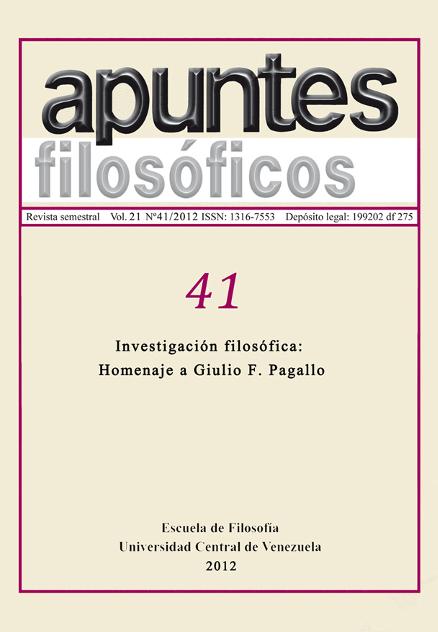Artículo
En la filosofía de Aristóteles y en la filosofía escolástica de cuño aristotélico, la abstracción constituía un acto fundamental del proceso cognitivo: marcaba el salto o ascenso de la sensibilidad a la inteligibilidad, del conocimiento del individuo al conocimiento de su esencia. En la teoría del conocimiento de Hegel, por el contrario, el concepto abstracto o, como Hegel prefiere llamarlo, la “representación abstracta” o “representación universal” es tan sólo un momento intermedio en el proceso fluído que va del conocimiento del objeto como algo sensible -en la forma de la intuición y la subforma de la imagen- al conocimiento de su naturaleza intrínseca -en la forma del pensar. Sobre la base, por un lado, de los escasos textos en los que Hegel se ocupa expresamente del tema, y, por el otro, de la contextualización de estos textos en un análisis general de la filosofía del espíritu subjetivo teórico, el presente trabajo busca reconstruir las tesis fundamentales de Hegel sobre la abstracción y esclarecer con ello el sentido y función que la misma tiene en su teoría del conocimiento. n both Aristotelian philosophy and the scholastic philosophy that bears its stamp, the concept of abstraction constitutes a fundamental act in the cognitive process; it signaled the leap or ascent from the realm of the senses to the realm of intellection, from knowledge of the individual to knowledge of his essence. By way of contrast, in Hegel's theory of knowledge, the abstract concept -or, as Hegel himself preferred to call it, “abstract representation” or “universal representation”- is nothing but an intermediate moment in the fluid process of going from knowing the object as something given to the senses -in the form of intuition and the subform of image- to knowing its intrinsic nature -in the form of thought. Based on the scant writings by Hegel wherein he expressly addresses the matter, and by subsequently placing these texts into the broader context of an analysis of Hegel's philosophy of theoretical subjective spirit, this paper attempts to reconstruct Hegel's most significant ideas on abstraction. Hopefully, this will serve to clarify both the meaning and the role of that notion in Hegelian theory of knowledge.
La abstracción en la teoría del conocimiento de Hegel
Fecha de publicación:
07/2012
Editorial:
Universidad Central de Venezuela
Revista:
Apuntes Filosóficos
ISSN:
1316-7553
Idioma:
Español
Tipo de recurso:
Artículo publicado
Clasificación temática:
Resumen
Palabras clave:
Hegel
,
Idealismo Alemán
,
Teoría del Conocimiento
,
Teorías de la abstracción
Archivos asociados
Licencia
Identificadores
Colecciones
Articulos(SEDE CENTRAL)
Articulos de SEDE CENTRAL
Articulos de SEDE CENTRAL
Citación
Ferreiro, Hector Alberto; La abstracción en la teoría del conocimiento de Hegel; Universidad Central de Venezuela; Apuntes Filosóficos; 41; 7-2012; 76-88
Compartir




